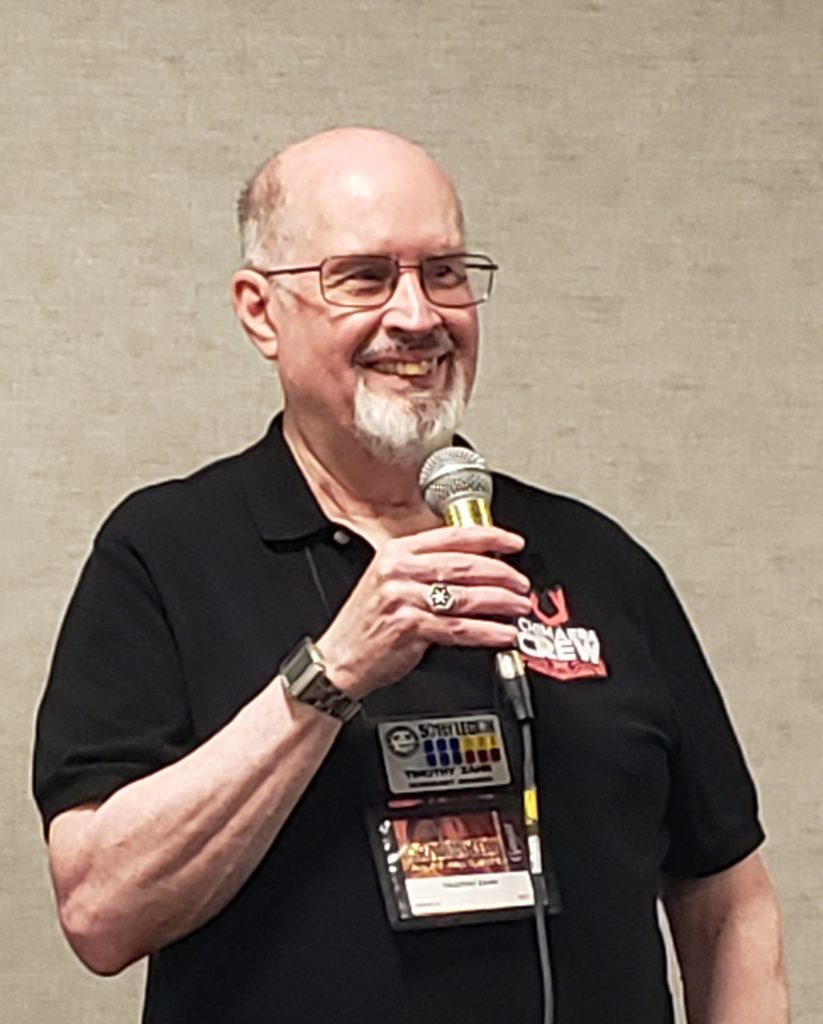Michael Stackpole’s equally enlightened companions, including guest author Timothy Zahn, presented Dragon Con’s Writer’s Hourly Workshops on Saturday afternoon, Hyatt Inman. For those of you who read my first installment, excitement carried me over to the late afternoon and early evening sessions after a long morning of workshops and snack breaks. (I rationed my coffee.) Session highlights appear in vanishing ink below, so read them quickly before they disappear.

“101 Ideas in an Hour,” Timothy Zahn, Friday at 2:30PM:
Starting with bunches of questions (gender, age, education, relationship status, family, etc.) Zahn shifted into flights of imagination with the last response, “dysfunctional family.” Somehow, the group ended up with a rock named Greg in a starring role. Was Greg really an alien or a communication device for aliens? Working through the myriad ideas offered by the group, Zahn emphasized the almost miraculous consequences that can arise from following initial pointed questions to their logical (or irrational, but definitely fun) consequences.
Hallelujah for ideas generating ideas, ad infinitum…
“Watching Movies to Make You a Better Writer,” Bryan Young, Friday at 4PM:
Author, screenwriter, filmmaker, journalist, etc., Young admitted that he teaches a weeks-long course (“Screenwriting” at the University of Utah) on story in movies and how to use a “juxtaposition of images” to tell a story. In only an hour, he gave attendees a crash course in movie examples that could guide their future fiction-writing practice. Drawing both on classic films and more recent favorites, Young discussed choice of perspective/point of view, building suspense versus surprise (noting famed director Alfred Hitchcock’s take), dialogue (including the layers of what is said, unsaid, and unsayable), and energy exchange in scenes.
More popcorn, please?
“Do you See What I see?” Benji Richards, Friday at 5:30PM:
Author and educator Richards asked if, in an effort to produce stories quickly, do we sometimes forget to include description and narrative? In answering, they also considered a variety of figurative language, metaphors, similes, personification, and such, as well as the use of alliteration, sibilance, and onomatopoeia. Richards emphasized the use of sensory details in world-building and character mood and discussed elements related to perspective and the amount of detail that works for different stories.
Poets, move over. Prose can be stunning, too!
(To be continued. A dozen workshops await review…)
